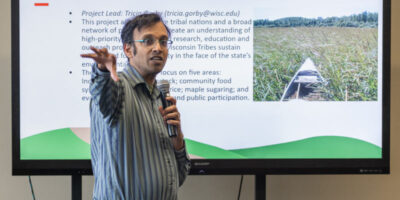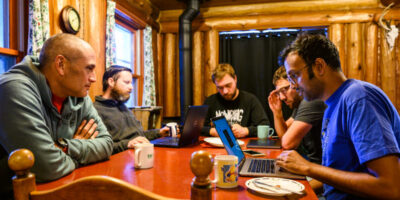
Professor Ankur Desai will be stepping into the role of assistant director for the Center for Climatic Research this fall.
An expert on climate change, carbon cycling, and micrometeorology, Desai is currently a professor in and chair of the Department of Atmospheric and Oceanic Sciences. He also holds affiliations with the Nelson Institute and its Center for Sustainability and the Global Environment, the Department of Civil and Environmental Engineering, the College of Letters & Science’s freshwater and marine sciences program, and the College of Agricultural and Life Sciences agroecology program.

Across campus, Desai is perhaps best known for his Ecometeorology Lab, which “explores the complicated relationship between the Earth and the atmosphere.” The lab skyrocketed to the global stage in 2018 with his aptly named CHEESEHEAD19 project which, with a $1.6 million grant from the National Science Foundation, established a new approach for measuring how vegetation and atmosphere influence each other on a hyper-local scale
Since he arrived on campus in 2007, Desai’s lab has published more than 200 articles, and he has mentored students at both the undergraduate and graduate levels with a philosophy rooted in communication and respect.
The assistant director position was formerly held by Steve Vavrus who, last fall, was named the state climatologist in the newly restructured Wisconsin State Climatology Office.